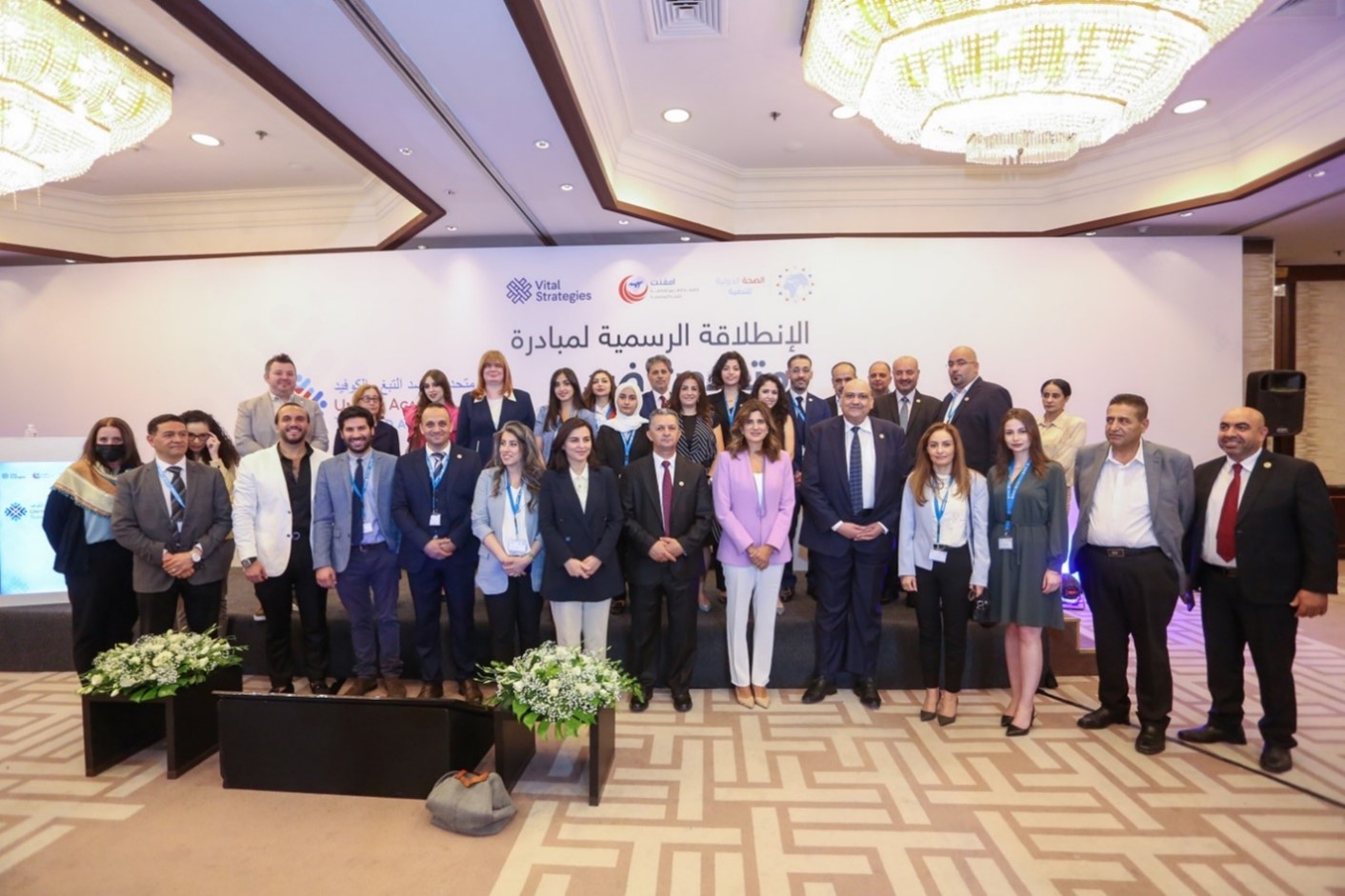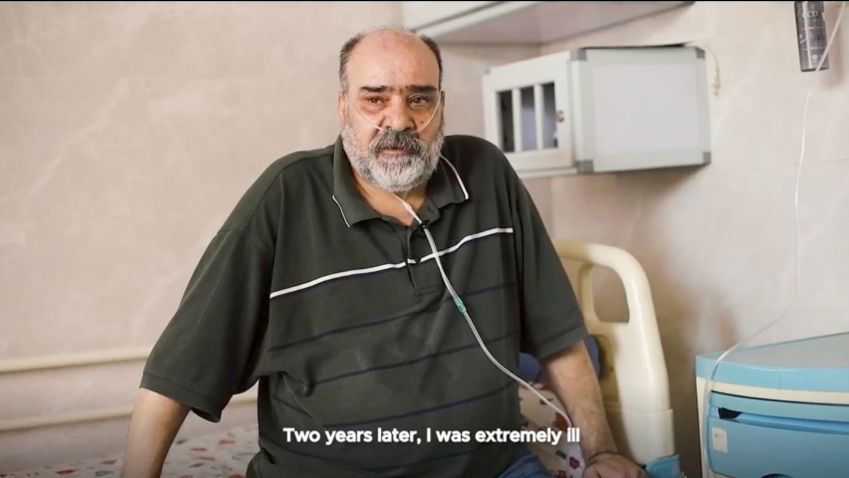Building on the COVID-19 response momentum: Targeted anti-tobacco media messages to confront the alarming tobacco consumption in the Eastern Mediterranean Region
23.08.2023
Eastern Mediterranean Region
GYTS
As per the latest World Health Organization (WHO) global report on trends in prevalence of tobacco use, The Eastern Mediterranean Region (EMR) has the highest proportion of total population – around 17% – living in countries where tobacco use is on the rise. Rates of tobacco smoking reach around 41% in Jordan, 31.3% in the Palestinian Territories, 22.8% in Egypt, and 20.7% in Iraq according to the WHO STEPwise approach to surveillance (STEPS) surveys or population studies.
The global discourse around tobacco was amplified since the beginning of the SARS COVID-19 pandemic, thus creating opportunities for advancing tobacco control measures. Governments in 17 countries in the EMR banned use of waterpipe tobacco smoking in public spaces. Unfortunately, this has been temporary in most countries.
In response to high tobacco use rates in the EMR, the United Against Tobacco and COVID (UATC) initiative was launched in 2022 to create a strategic media campaign in four countries (Egypt, Iraq, Jordan, and Palestinian Territories) that called attention to the harms of smoking and encouraged quitting (Figure 1). The goal of the campaign was to raise risk perceptions about tobacco harms, increase people’s understanding of the benefits associated with quitting, and promote smoking cessation interventions, the campaigns seek to discourage the use of tobacco, encourage tobacco smokers to quit and use smoking cessation services, and motivate the public and policymakers to support smoke-free places and promote an environment that is conducive to policy change. The UATC website provides details of the initiative and hosts materials available in English and in Arabic.

Figure 1: Launch event, with HRH Princess Dina Mired, EMPHNET, CDC and Vital Strategies, Amman, Jordan
The media messages in each of the countries were informed and approved by the local steering committees that included Ministries of Health, WHO representatives, and key stakeholders. A video called “Echo,” previously developed and used in Turkïye, was a centerpiece for the 2022 campaign in Jordan that ran on multiple channels—including television and digital media—for six to eight weeks (Figure 2). The Jordan campaign broadcasts also aired in the Palestinian Territories and Iraq. Additionally, Iraq, the Palestinian Territories, and Egypt created their own campaigns that focused on the harms of waterpipes as well as a personal testimonial campaign (Figure 3). Smokers and nonsmokers between 18 and 55 years of age were the primary target audience. The campaign's messages were also placed on social media to reach younger populations since they are particularly at risk of tobacco use.

Figure 2: Screen shot ECHO campaign, Jordan
The campaign reached 50 million tobacco smokers and nonsmokers across four countries through TV, digital media, radio, and out-of-home advertising, such as billboards and posters. This estimate included approximately 29 million people in Egypt, 25 million in Iraq, 3 million in Jordan and more than 2.5 million in Palestinian Territories.

Figure 3: Testimonial from Mostafa showing the medical consequences of smoking, Egypt
The UATC initiative catalyzed action on tobacco control and is an important steppingstone in helping to protect the health of millions across the region.
A mix of process and post-campaign evaluation methods were used to estimate campaign effects in the four countries. This included analysis of media reach estimated by media planning agencies, the number of news articles published about campaign launches, continuous monitoring of campaign performance by campaign managers, and outcome evaluation studies in Jordan (using quantitative methods) and the Palestinian Territories, (using primarily qualitative methods). The evaluation results demonstrated that many across Egypt, Iraq, Jordan, and Palestinian Territories asked for support with quitting smoking. For example, in Jordan visits to cessation clinics almost doubled during the campaign with 865 visits before (March-May) compared to 1,392 throughout the campaign (July-August) (Communicating for Tobacco Control: United Against Tobacco and COVID).
Building on the results and the success of the campaign in 2022, the UATC activities are continuing in Jordan and in Palestine to raise public awareness about existing tobacco control laws, focusing on the right to health and addressing the rights of individuals to be protected from second-hand smoke, and on the importance of enforcing tobacco control policies. Data from the Global Youth Tobacco Survey (GYTS), a component of the Global Tobacco Surveillance System, were used to support the justification to implement initiatives such as UATC by providing evidence on the burden of tobacco use experienced in the Eastern-Mediterranean region. More on how GYTS data was used to support this initiative can be found on this factsheet on the UATC website.
The project is funded by the CDC in partnership with the EMPHNET and Vital Strategies. Partner organizations include Ministries of Health in Jordan, Palestinian Territories, Iraq and Egypt, as well as the Royal Health Awareness Society (RHAS) in Jordan, Institute of Community and Public Health at Birzeit University in Palestine, United Iraqi Medical Society for Relief and Development in Iraq (UIMS), and Cairo Association against Smoking, Tuberculosis and Lung diseases- in Egypt (CASTLE). UATC is also supported by a Technical Advisory Committee composed of WHO-EMR Office, CDC-Middle East North Africa (CDC-MENA), CDC-Egypt, United Nations Children’s Fund (UNICEF) and Statistical, Economic and Social Research and Training Centre for Islamic Countries (SESRIC).